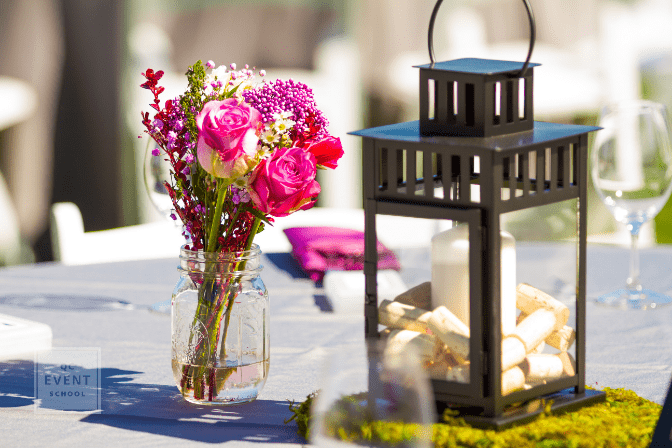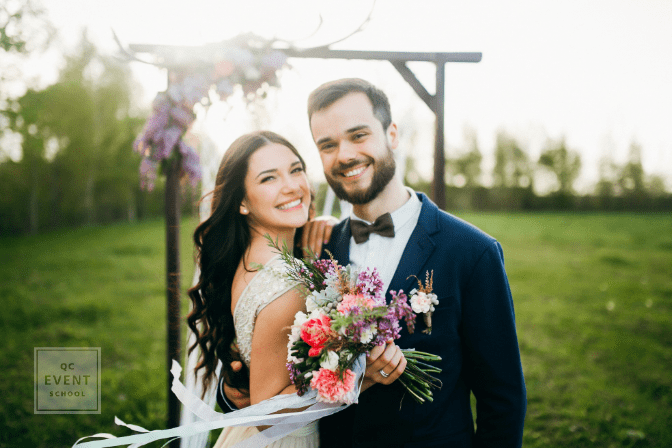
Distinguishing Your Role: Wedding Planner vs. On-Site Venue Coordinator – Part 1
It’s not uncommon for an engaged couple to think to themselves: We don’t NEED a certified wedding planner. We’ll just hire a venue coordinator – they’re basically the same thing anyways!
These professions are frequently mistaken as being synonymous. But the fact is, they are worlds apart! Yes, they may share some commonalities. But the services they can provide clients are drastically different.
This two-part series will break down what both professions are, and how YOU can best distinguish your role as the wedding planner for potential clients. Today, in Part One, let’s start by looking at on-site venue coordinators!
What is a Venue Coordinator?
A venue coordinator works for the venue itself. They may also be referred to as a “wedding coordinator” or a “wedding manager”. They’re the team member responsible for being the main point of contact with the venue. Frequently, the venue coordinator is most often associated with the venue’s Catering or Sales team.
What Can a Venue Coordinator Do for Clients?
In a nutshell, they can help a couple with the decisions being made in relation to the venue itself. Some examples can include:
- Menu selections
- Dining/table setup
- Final guest counts
- Assisting with venue decor, setup, etc.
- Assisting with AV equipment
- Managing venue-related timelines and schedules
- Collection of payment for venue services
A venue coordinator can be a very big help when it comes to all things pertaining to the venue! This definitely can’t be denied. However, if you consider the entire wedding planning process, the scope of their services is incredibly limiting.
For a couple looking for professional assistance with their special day, there’s only so much that a venue coordinator is going to be able to do. This is namely because their job duties STOP the moment it gets to anything beyond the venue.
What a Venue Coordinator Can’t Do
If it doesn’t have to do with the venue, venue coordinators can’t help you. Here are a few examples of how on-site venue coordinators can only do so much for potential clients:
Vendors and Suppliers
If the venue has a list of recommended/preferred vendors or suppliers, the venue coordinator can provide that information. When this option is available, it can definitely be useful for clients!
Beyond that, though, that’s about it. Venue coordinators often won’t be the ones actually going about securing those services, nor are they required to do any further research for additional vendors/suppliers who aren’t already on the venue’s list.
Wedding Day Timeline
Venue coordinators are fantastic at working out the timeline for any and all services being provided by the venue itself. They’ll also ensure that any services being provided by their business will run smoothly and on-schedule for the client.
However, that’s pretty much it. If it doesn’t have the do with a service directly provided by the venue, a venue coordinator isn’t responsible for it. All other timelines and schedules – as well as sticking to them – will be the responsibility of the client.
Availability to Clients
Many coordinators have a large amount of clients. They also work strictly during the venue’s business hours, usually weekdays 9-5.
All of this can result in delayed replies to phone calls, emails, and texts. You’ll be reliant on the venue coordinator’s schedule, rather than them catering to yours.
Event Design/Planning
They may be able to assist a client with setting up and decorating the venue, but it’ll be up to the client to obtain all the decor first. It’ll also be the client’s responsibility to design the event on their own time, using their own resources.
Venue coordinators have no part in helping couples organize their overall wedding. This means they can’t assist with:
- Formulating and updating the guest list
- The overall budget for the whole wedding event
- Save The Dates, invitations, Thank You cards, etc.
- Finding vendors and suppliers outside of the venue
- Bridal gowns, suits, etc.
- Cake tasting and selection
- Putting together speeches or toasts
- Finding an officiant, priest, etc.
- And much more!
In short: if a couple is looking for professional help with the actual wedding planning process, they won’t be able to get this from a venue coordinator.
The Main Priority
Because a venue coordinator works for the venue, it only makes sense that their main priority is going to be the best interests of the venue itself. While this is great in many aspects, it might not always be ideal for the client.
A couple planning their nuptials should be getting help someone who is all about making THEM the number one priority! Here, a certified wedding planner is the only clear choice.
In the world of wedding planning, a certified planner will be able to provide a far wider range of services and options for the couple. More importantly, they’ll always ensure to focus on the client’s best interests above anything else.
When it all boils down to it, isn’t that what every client wants?
In Part Two, we’ll delve into the role and responsibilities of a certified wedding planner. Plus, we’ll help you learn how to distinguish your role with your clients. Stay tuned!



